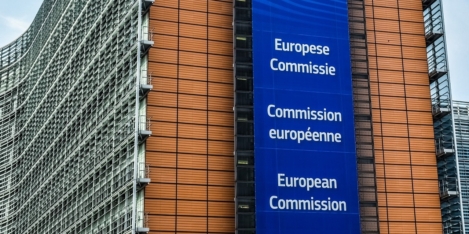March 10, 2020
Expectations at work are changing
 New research from Aon, claims that 94 percent of employers believe their employees’ expectations of work experience are changing. In Aon’s Benefits and Trends Survey 2020, employers say their employees expect flexible working hours, the ability to work from home, better awareness and handling of mental health, better approaches to diversity and inclusion and better parental policies. A surprise in this year’s report is the strength of opinion on environmental and sustainability policies, coming in at the seventh most important expectation in its first year in the survey. Fifty-four percent of employers believe that employees want clarity and positivity on this subject.
New research from Aon, claims that 94 percent of employers believe their employees’ expectations of work experience are changing. In Aon’s Benefits and Trends Survey 2020, employers say their employees expect flexible working hours, the ability to work from home, better awareness and handling of mental health, better approaches to diversity and inclusion and better parental policies. A surprise in this year’s report is the strength of opinion on environmental and sustainability policies, coming in at the seventh most important expectation in its first year in the survey. Fifty-four percent of employers believe that employees want clarity and positivity on this subject.







 The European Commission has put forward a strategy to promote the development of AI and robotics while putting people first and defending European values and rights. The strategy acknowledges that AI can open up new opportunities for businesses and bring solutions to challenges such as climate change. However, it aims to address the social, legal and ethical impact of new technology.
The European Commission has put forward a strategy to promote the development of AI and robotics while putting people first and defending European values and rights. The strategy acknowledges that AI can open up new opportunities for businesses and bring solutions to challenges such as climate change. However, it aims to address the social, legal and ethical impact of new technology. 
 Insider data breaches are a major concern for 97 percent of IT leaders, according to new research. About three quarters believe that employees have put data at risk in the past 12 months accidentally (78 percent) or intentionally (75 percent). When asked about the implications of these breaches, more than two in five said financial damage would be the area of greatest impact.
Insider data breaches are a major concern for 97 percent of IT leaders, according to new research. About three quarters believe that employees have put data at risk in the past 12 months accidentally (78 percent) or intentionally (75 percent). When asked about the implications of these breaches, more than two in five said financial damage would be the area of greatest impact. 
 New research has been published aimed at understanding trends, practices and priority areas for improving employees’ experience and creating better places to work. The report,
New research has been published aimed at understanding trends, practices and priority areas for improving employees’ experience and creating better places to work. The report, 




 Communicating a business’s “employee value proposition” or EPV – the package of rewards that it offers in return for the person’s performance at work – is having an increasingly positive impact on employee engagement, retention and recruitment, research has claimed.
Communicating a business’s “employee value proposition” or EPV – the package of rewards that it offers in return for the person’s performance at work – is having an increasingly positive impact on employee engagement, retention and recruitment, research has claimed. 
 As AI continues to disrupt the world of work, a new report says upskilling and reskilling will be crucial in developing workers’ competencies to complement technological innovation. Yet according to the
As AI continues to disrupt the world of work, a new report says upskilling and reskilling will be crucial in developing workers’ competencies to complement technological innovation. Yet according to the 


 Younger decision makers are increasingly relying on technology such as emails, video conferencing and WhatsApp in negotiations with suppliers, rather than speaking to them face-to-face, new research from
Younger decision makers are increasingly relying on technology such as emails, video conferencing and WhatsApp in negotiations with suppliers, rather than speaking to them face-to-face, new research from 







March 10, 2020
A great company culture is the basis for successful flexible working
by Chris Dyer • Comment, Flexible working